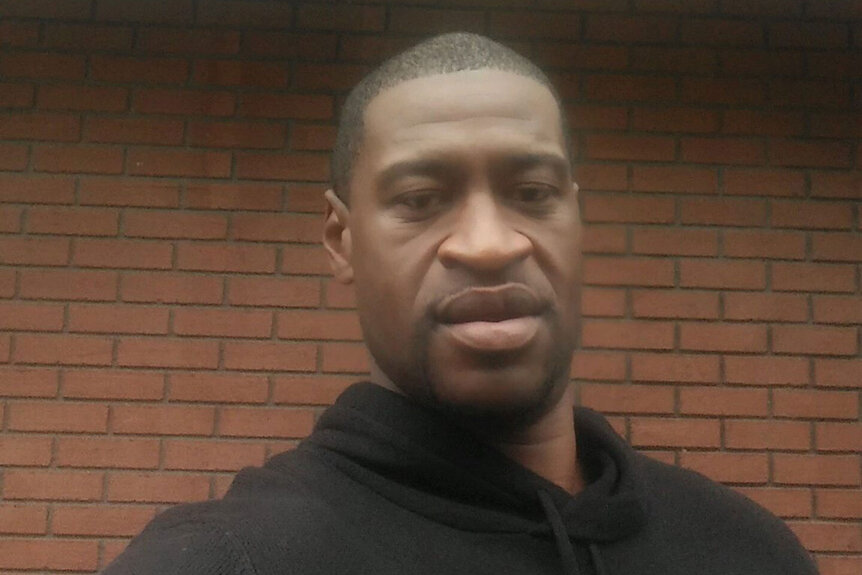Create a free profile to get unlimited access to exclusive videos, breaking news, sweepstakes, and more!
‘No, Staying Put Where We Got Him’: Derek Chauvin Allegedly Refused Fellow Officer’s Suggestion To Roll George Floyd On His Side
Former Minneapolis police officer Derek Chauvin allegedly kept his knee pressed into George Floyd's neck, even after a fellow officer told him that Floyd didn't have a pulse, according to a criminal complaint.

A former Minneapolis police officer continued to press his knee into George Floyd’s neck even after another officer on the scene suggested rolling Floyd to his side, according to new court documents.
Derek Chauvin, who is now facing second-degree manslaughter and third-degree murder charges in Floyd’s death, allegedly pressed his knee into Floyd’s neck for nearly nine minutes, including keeping his knee there for two minutes and 53 seconds after Floyd became unresponsive, according to a criminal complaint obtained by CBS News.
Another officer suggested rolling Floyd to his side, but Chauvin allegedly told the officer “No, staying put where we got him,” the complaint said.
One of the officers at the scene also checked Floyd’s wrist for a pulse and allegedly told Chauvin he could not find one, but the former police officer continued to keep his knee pressed into Floyd’s neck, CNN reports.
Floyd's death has sparked days of protests, at times violent, across the country.
Officers had initially approached the 46-year-old the evening of May 25 after getting a report that someone had tried to make a purchase at a store with a fake $20 bill, the criminal complaint states, according to The New York Times.
Two officers initially approached Floyd as he sat in a car with two other people. The officers ordered Floyd out of the car and put him under arrest but he “stiffened up” and “fell to the ground” as the officers got closer to the squad car, allegedly telling the officers that he was claustrophobic and did not want to get into the car.
Additional officers—including Chauvin—arrived to try to get him into the car but Floyd “struggled with the officers by intentionally falling down,” the report said.
After Chauvin pressed his knee into Floyd’s neck the 46-year-old pleaded “I can’t breathe” and “please.”
Chauvin continued to apply pressure even after Floyd had stopped speaking or moving, according to the report.
Chauvin has been charged with third-degree murder in the case—but Floyd’s family believes he should be facing stronger charges.
“We think that [Chauvin] had intent, based on not the one minute, two minute, but over eight minutes, almost nine minutes he kept his knee in a man’s neck that was begging and pleading for breath,” Benjamin Crump, the attorney for Floyd’s family said on Sunday’s CBS' “Face the Nation.” “At what point does it not be about detaining a man who is face-down with handcuffs, not posing any threat, to an intentional will to cause bodily harm? And if that results in death, every prosecutor in America will show that that is first-degree murder.”
Under the state statutes, a third-degree murder charge does not require an intent to kill but is applied when a perpetrator acts “without regard for human life.”
Prosecutors would need to be able to prove that Chauvin had the intent to kill Floyd in order to file either second-degree or first-degree murder charges.
Floyd’s family believes Chauvin should be facing first-degree murder charges, arguing that the two men had once worked security at the same nightclub and likely knew each other.
“They had to overlap,” Crump said. “And so it’s going to be an interesting aspect to this case and hopefully upgrading these charges to first-degree murder because we believe he knew who George Floyd was.”
Richard Frase, a professor of criminal law at the University of Minnesota, told The New York Times the case was reminiscent of similar charges brought against another Minneapolis police officer, Mohamed Noor, in 2017.
In that case, Noor was convicted of third-degree murder and second-degree manslaughter after he panicked and fired a shot that killed an unarmed woman, Justine Ruszczyk.
However, Frase said the initial evidence released by authorities in the Floyd case seemed to be even stronger because Chauvin had “eight minutes” to consider his actions.
Chauvin is currently being held at a maximum-security prison known as MCF-Oak Park Heights, according to a statement from the Minnesota Department of Corrections obtained by Oxygen.com.
He was moved from the county jail to the state prison on Sunday due to safety concerns.
“The move to DOC custody was made out of an abundance of caution to ensure he is safely held and after concern about space in the jail due to large numbers of arrests related to the unrest over the last few nights,” the statement said.
According to the Department of Corrections, Noor was also held in DOC custody before his trial. He was convicted in his case and sentenced to 12.5 years in prison last June.
Chauvin is currently being held in administrative segregation away from the general population.
For the latest reporting on the George Floyd protests from NBC News and MSNBC’s worldwide team of correspondents, including a live blog with minute-to-minute updates, visit NBCNews.com and NBCBLK.



























